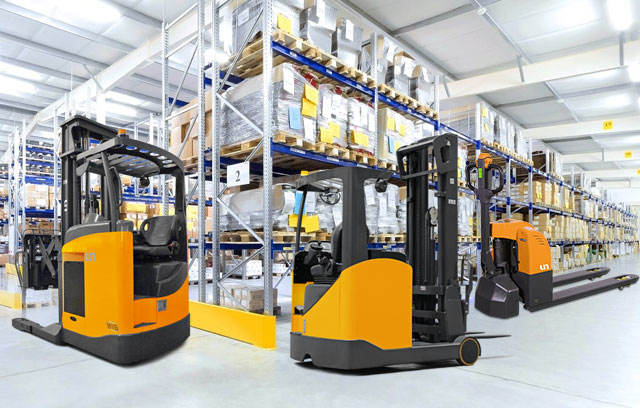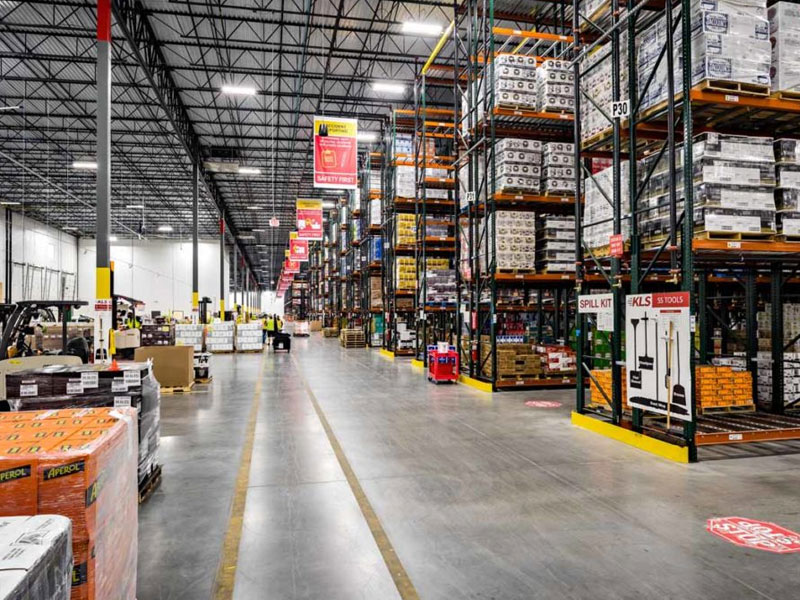The range and run time of an electric forklift on a single charge are influenced by various factors. Here are key factors that play a significant role:
Battery Capacity:
The capacity of the forklift's battery is a primary determinant of its range and run time. Higher-capacity batteries generally provide longer operating periods.
Battery Type:
Different battery chemistries, such as lead-acid, lithium-ion, or nickel-metal hydride, have varying energy densities and performance characteristics, affecting the forklift's overall efficiency.
Charging Speed and Efficiency:
The speed and efficiency of the charging system can impact the forklift's availability for use. Fast-charging systems may allow for shorter charging intervals during breaks or shifts.
Charging Infrastructure:
The availability and accessibility of charging stations influence how frequently the forklift can be charged, impacting its overall run time.
Workload and Application:
The type of tasks the forklift performs and the intensity of its workload affect energy consumption. Constant heavy lifting or extended periods of operation can reduce the overall run time.
Terrain and Surface Conditions:
Uneven or challenging terrain requires more power to navigate, reducing the forklift's efficiency and overall range.
Speed and Acceleration:
Higher speeds and frequent acceleration can increase energy consumption, affecting both the range and run time.
Operational Practices:
Operator behavior, such as abrupt starts and stops, can impact energy efficiency. Training operators to use the forklift in a smooth and efficient manner contributes to better performance.
Temperature:
Extreme temperatures, whether hot or cold, can affect battery performance. Cold temperatures may reduce battery efficiency, while hot temperatures can lead to thermal stress.
Battery Age and Health:
The age and health of the battery influence its overall capacity. Over time, batteries may experience degradation, resulting in reduced run time.
Regenerative Braking:
Forklifts equipped with regenerative braking systems can recover and store energy during braking, enhancing overall efficiency and potentially extending run time.
Load Handling:
The weight and nature of the loads being lifted impact the energy required. Heavier loads may reduce the forklift's overall efficiency and run time.
Forklift Design and Efficiency:
The design and efficiency of the electric forklift itself, including the motor, drivetrain, and overall energy management system, play a role in determining range and run time.
Maintenance:
Regular maintenance, including keeping the forklift well-lubricated and ensuring proper tire pressure, contributes to optimal performance and energy efficiency.
Idle Time:
Periods of idle time when the forklift is not in use but still powered on can contribute to unnecessary energy consumption, impacting overall run time.
Operational Shifts:
If the forklift is used continuously across multiple shifts without adequate charging opportunities, it may not have sufficient time to recharge fully, affecting subsequent run times.
Telematics and Monitoring Systems:
Forklifts equipped with telematics and monitoring systems can provide real-time data on energy consumption and performance, allowing for optimization and better planning.
Governors and Speed Limiters:
Some forklifts may have speed governors or limiters to control speed, contributing to energy efficiency and extending run time.
Considering and managing these factors allows for the effective optimization of electric forklifts, ensuring optimal performance, longer run times, and efficient use of battery power.











 中文简体
中文简体 عربى
عربى Español
Español














